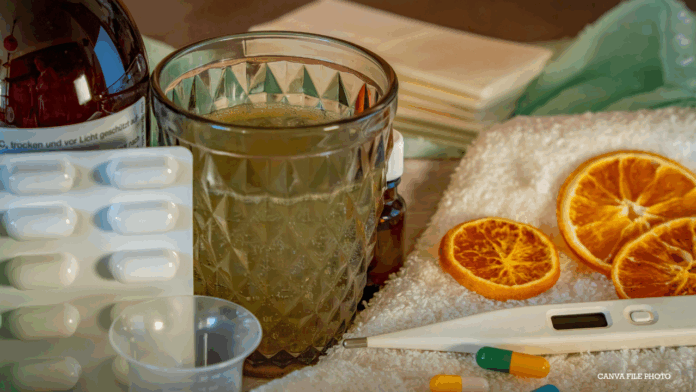As the rainy season returns, so do familiar scenes: people donning face masks, lining up at pharmacies, and isolating themselves to prevent the spread of symptoms. The change in weather often brings a spike in seasonal illnesses, from the common cold and flu to more serious diseases like dengue, leptospirosis, malaria, and hepatitis A.
These illnesses are largely preventable and treatable through proper awareness, early intervention, and responsible practices.
Colds and Flu
Colds and flu are among the most common illnesses during weather transitions. These viral infections primarily target the respiratory system. Although generally not life-threatening, they can lead to complications such as sinus infections, bronchitis, or pneumonia. This is especially true for children, seniors, and individuals with weakened immune systems.
One of the challenges today is the overlap in symptoms between the flu, colds, and COVID-19. This often leads to heightened anxiety and social stigma.
Treatment and Prevention:
- Maintain a stable body temperature and stay hydrated.
- Take medications as prescribed and get enough rest.
- Use sponge baths to help reduce fever.
- Strengthen your immune system with Vitamin C and a balanced diet.
- Wear a mask if you’re feeling unwell to avoid spreading illness.
Dengue and Malaria
Both dengue and malaria are mosquito-borne diseases that thrive during the rainy season.
Dengue fever, caused by the dengue virus, is transmitted by the Aedes aegypti mosquito which breeds in stagnant water commonly found in urban areas. While adults often recover, dengue can be life-threatening for children and the elderly if not managed properly.
Malaria is caused by a parasite transmitted through the bite of infected Anopheles mosquitoes. It remains a life-threatening illness in tropical regions, including rural parts of the Philippines.
Prevention:
- Remove stagnant water from containers, tires, pots, and gutters to destroy mosquito breeding grounds.
- Keep surroundings clean and free of clutter where mosquitoes can hide.
- Use insect repellent, mosquito nets, and wear long-sleeved clothing when outdoors, especially at dawn and dusk.
- Seek medical help immediately if symptoms such as high fever, chills, muscle pain, or rashes appear.
Hepatitis A (HAV)
Hepatitis A is a viral infection of the liver. It is primarily transmitted through the ingestion of contaminated food or water due to poor sanitation and food handling practices.
Prevention:
- Practice strict personal hygiene, especially proper handwashing before meals and after using the toilet.
- Ensure safe and sanitary food preparation, particularly for those handling food commercially or at home.
- Avoid consuming street food from unhygienic sources.
- If a household member is infected, avoid sharing utensils and disinfect them regularly.
Leptospirosis
Leptospirosis is a bacterial infection caused by contact with water contaminated with the urine of infected animals, particularly rodents. It becomes a major public health concern in flood-prone areas where sanitation is poor.
Children are more vulnerable to complications. These may include respiratory distress, liver and kidney failure, meningitis, and even death if untreated.
Prevention:
- Avoid wading in floodwaters, especially if you have open wounds or broken skin.
- Use protective gear like rubber boots and gloves when outdoors or during cleanup operations.
- Properly cover water containers and avoid storing water in open drums.
- Control rodent populations through sanitation, traps, or pest control. Dispose of dead rodents carefully using protective equipment.
The rainy season may be inevitable. However, many of the illnesses that come with it are preventable. By staying informed, maintaining good hygiene, and observing preventive measures, we can protect ourselves and our communities from seasonal diseases. Let us remain vigilant and proactive in safeguarding our health during this time of year.



